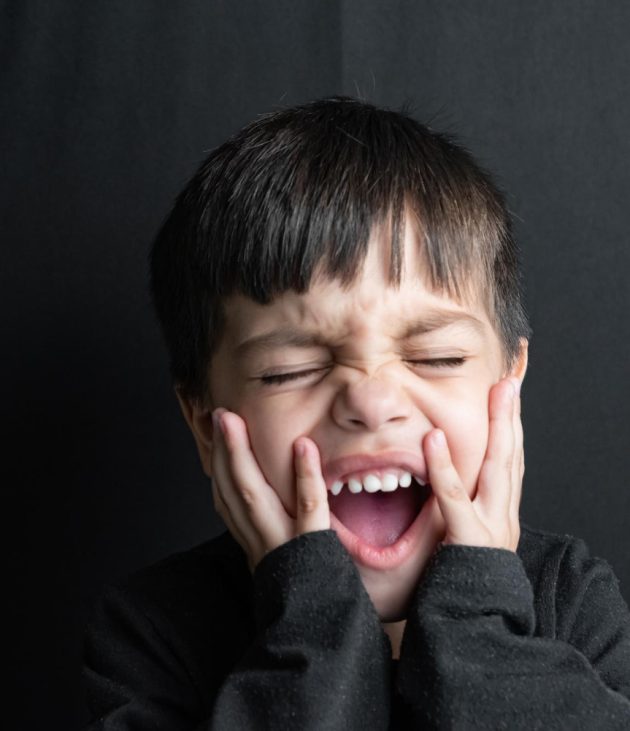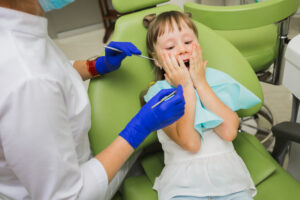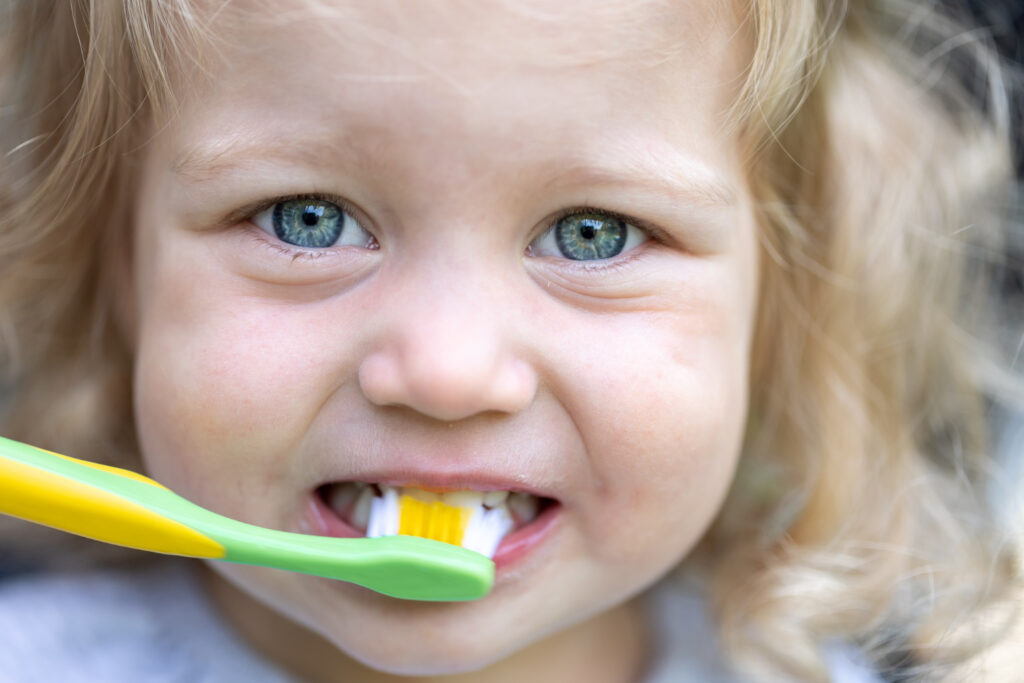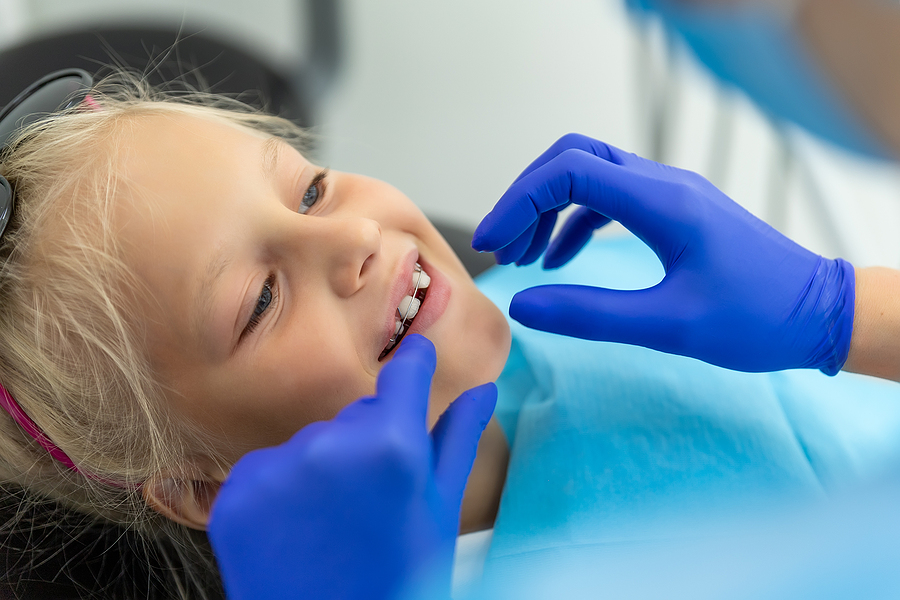Dental anxiety in children is a common phenomenon that affects young patients, causing distress and fear when it comes to dental visits. This fear can have a significant impact on their oral health and overall well-being. Our Pediatric dentist Shoreline understands the significance of dental anxiety in children and is dedicated to providing a safe and comfortable environment for young patients. We recognize that dental anxiety can hinder a child’s ability to receive the dental care they need, which can have long-term consequences for their oral health.
Understanding Dental Anxiety in Children
Dental anxiety is more than just regular fear or nervousness. It is an intense feeling of unease or apprehension specifically related to dental visits and procedures. It can manifest in various ways, from mild discomfort to extreme panic. Understanding this distinction is crucial in helping children overcome their fears and anxieties.
There are several common causes and triggers of dental anxiety in children. One of the primary factors is previous negative experiences. A single traumatic or painful dental encounter can leave a lasting impact on a child’s perception of dentistry, leading to heightened anxiety during subsequent visits. Fear of pain is another significant trigger. The unknown aspects of dental procedures, such as the sound of dental instruments or the sensation of numbness, can create anxiety in children who are unfamiliar with them.
If left untreated, dental anxiety can have long-term consequences for a child’s oral health. Avoidance of dental visits due to fear can result in neglected oral care, leading to tooth decay, gum disease, and other dental issues. The untreated dental problems may exacerbate the anxiety, creating a vicious cycle that can persist into adulthood. By addressing dental anxiety early on, we can help prevent these potential long-term consequences and ensure our children’s oral health remains in optimal condition.
Signs and Symptoms of Dental Anxiety in Children
Recognizing the signs and symptoms of dental anxiety in children is essential in addressing their fears and providing appropriate support. While each child may exhibit unique reactions, there are common indicators that can help identify dental anxiety. Here are some signs and symptoms to look out for:
1. Crying and Distress
Children with dental anxiety may become visibly upset, expressing their fear through tears, sobbing, or even outright refusal to go to the dentist. This emotional response is a clear indication of their anxiety surrounding dental visits.
2. Resistance and Avoidance
Children may exhibit resistance to dental appointments, finding excuses to skip or delay them. They may express a strong desire to avoid any discussion or mention of dental visits, exhibiting avoidance behaviors whenever the topic arises.
3. Physical Discomfort
Children experiencing dental anxiety may complain of physical discomfort even before their dental appointment. They might experience stomachaches, headaches, or general restlessness due to the anticipation of dental procedures.
4. Restlessness and Fidgeting
During dental visits, children with dental anxiety may display restlessness and fidgeting. They may have difficulty sitting still in the dental chair, constantly shifting or squirming as their anxiety intensifies.
5. Excessive Crying or Tantrums
Some children may experience heightened anxiety during dental procedures, leading to excessive crying or tantrums. These intense emotional reactions can make it challenging for dental professionals to provide the necessary care.
6. Behavioral Changes
Dental anxiety can also manifest in changes in a child’s behavior. They may become more withdrawn, irritable, or display regressive behaviors like thumb-sucking or bedwetting. These changes can be a direct response to the anxiety they associate with dental visits.
It’s important to note that the signs and symptoms of dental anxiety may vary depending on the child’s age. Younger children may have difficulty verbalizing their fears, relying more on nonverbal cues like crying, clinging to parents, or displaying heightened distress. Older children may express their anxiety through verbalized fears, asking frequent questions about the dental visit or expressing concerns about pain or discomfort.
By being aware of these signs and symptoms, parents and caregivers can better understand and support their child’s dental anxiety. Creating a safe and understanding environment can help alleviate their fears and make dental visits a more positive experience for everyone involved.
Tips for Easing Dental Anxiety in Children
When it comes to helping children overcome dental anxiety, there are practical strategies that parents and caregivers can employ. By implementing these tips, you can create a supportive environment that eases their fears and ensures a positive dental experience. Here are some effective techniques to consider:
a. Choose a pediatric dentist experienced in handling anxious children
Opt for a pediatric dentist who specializes in treating children with dental anxiety. These professionals have the expertise and knowledge to create a comfortable and child-friendly environment, using techniques that can help alleviate anxiety.
b. Prepare your child for the dental visit through open communication
Prior to the appointment, have an open and honest conversation with your child about what to expect during the dental visit. Explain the procedures in a reassuring and age-appropriate manner, addressing any concerns they may have. This helps demystify the experience and reduces anxiety.
c. Use positive reinforcement and rewards to motivate your child
Encourage your child’s cooperation by using positive reinforcement techniques. Offer praise, rewards, or small incentives for their bravery and cooperation during the dental visit. This creates a positive association with dental care and helps alleviate anxiety.
d. Teach relaxation techniques, such as deep breathing or visualization exercises
Help your child develop relaxation techniques that can be used during dental visits. Deep breathing exercises and visualization techniques, where they imagine themselves in a calm and peaceful place, can help reduce anxiety and promote relaxation.
e. Consider non-pharmacological techniques, such as distraction or music therapy
Non-pharmacological techniques can be highly effective in diverting a child’s attention away from dental anxiety. Encourage your child to bring a favorite toy or stuffed animal to hold during the appointment. Additionally, playing soothing music or using headphones can create a calming atmosphere.
f. Discuss the option of sedation dentistry for severe cases of dental anxiety
In cases where dental anxiety is severe or persistent, it may be necessary to explore sedation dentistry options. Talk to your pediatric dentist about whether sedation dentistry is a viable solution for your child. This approach can help provide a relaxed and comfortable experience while receiving necessary dental treatments.
Sedation Dentistry for Children
Sedation dentistry in Shoreline is an option for children with severe dental anxiety. It involves using medication to help them relax during dental procedures. Here are common types of sedation used in pediatric dentistry:
1. Nitrous Oxide (Laughing Gas)
Nitrous oxide, or laughing gas, is administered through a mask over the nose. It induces relaxation and euphoria, reducing anxiety during dental procedures. Nitrous oxide wears off quickly, allowing children to recover swiftly.
2. Oral Sedation
Oral sedation involves giving children medication in pill or liquid form before the visit. It induces relaxation and reduces anxiety. Children remain awake but feel calm and less anxious.
3. IV Sedation
IV sedation is administered through a vein by an anesthesiologist or dental anesthetist. It results in a sleep-like state during the procedure. Vital signs are closely monitored.
4. General Anesthesia
General anesthesia induces unconsciousness and is typically administered in a hospital or specialized dental facility. It allows for complex procedures while the child is unaware and pain-free. Vital signs are closely monitored.
Trust Expert Kids Sedation Dentistry in Shoreline
When it comes to pediatric sedation dentistry, trust the expertise of Floss & Gloss, Shoreline Kids dentistry. Our experienced dental team understands the importance of creating a safe and comfortable environment for your child during dental procedures. Whether your child requires sedation for lengthy treatments, has a high fear of dental care, difficulty sitting still, or has special needs, we are here to help.
At Floss & Gloss Kids Dentistry, we have highly skilled anesthesiologists who are medical doctors. They thoroughly review your child’s medical history before administering sedation to ensure their safety and well-being. Our priority is providing safe and pain-free dental treatments for our young patients.
Contact Floss & Gloss, the leading Shoreline kids’ dentistry practice, today to schedule an appointment and experience compassionate, top-quality care for your child.







